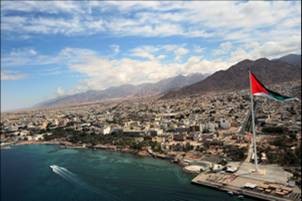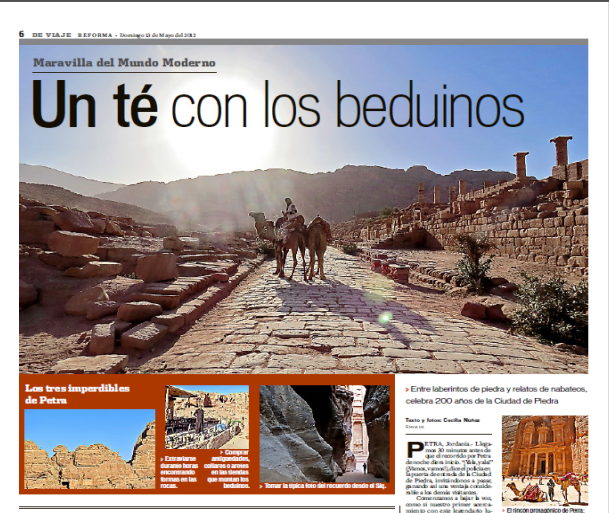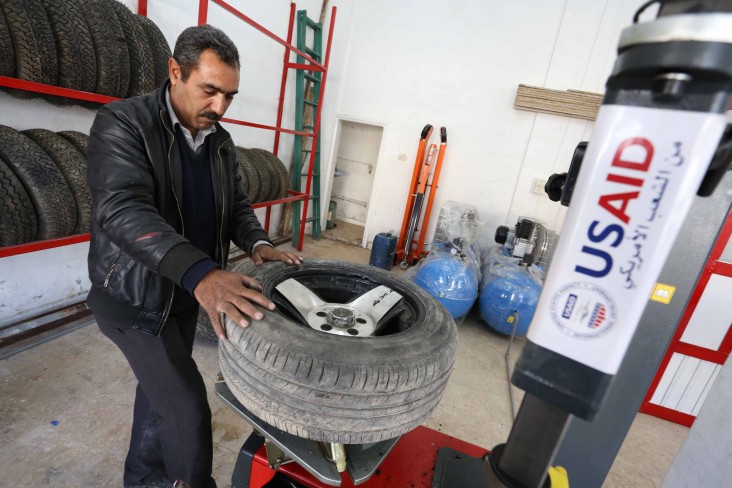Broad-based, Inclusive Economic Development Accelerated

OVERVIEW
Jordan’s economy benefits from its well-educated population, strategic location, world-heritage tourism sites, and a reputation for stability in a turbulent region. The economy grew steadily from 1999 to 2008 as the Government of Jordan (GOJ) promoted economic reform with social and political development. The global economic crisis and more recently regional instability have caused this progress to slow, adding significant economic pressure in a number of areas.

CHALLENGES
The global economic crisis undermined previous gains by reducing the demand for exports, remittances from expatriate Jordanians, tourism revenues, and foreign direct investment. Just as Jordan was recovering from these obstacles, instability from the Arab Spring in Syria, Iraq and Egypt – three of Jordan’s major trading partners – further exacerbated these challenges. The rapidly growing population, including a large influx of refugees since 2011, is putting more pressure on resources. Water scarcity and a near-total reliance on imported energy are also presenting challenges. Between 2010 and 2015 GDP growth averaged just 2.6 percent.
Jobs are scarce outside large cities and are not being created fast enough to absorb a growing, youthful workforce whose education and skills do not always match the market’s needs. Business development is hampered by regulatory and productivity challenges, as well as limited access to capital and an environment that inhibits innovation.
GDP grew by 2 percent in 2016 and economic growth is expected to pick up modestly in 2017, driven by some rebound in exports, tourism, and remittances. Foreign direct investment and tourism are slowly rebounding, and businesses in the medical services, clean technology, and information and communications technology (ICT) sectors have shown a continued capacity to grow.

CURRENT PROGRAMS
USAID’s economic development and energy programs in Jordan have evolved over the years from building roads to building a more diverse and globally competitive economy. During the past decade, USAID has
partnered with the GOJ to implement fiscal reforms, promote trade, enhance competitiveness in the private sector, increase energy efficiency and improve workforce readiness.
IMPACT & RECENT ACHIEVEMENTS
Some USAID-supported achievements include:
- The provision of $3.75 billion in U.S. Government loan guarantees that will save the GOJ over $600 million in interest costs over the next five years, while also lowering the domestic interest rate and helping to boost economic growth.
- Assisted Jordan and the International Monetary Fund to enter into an extended fund facility worth $723 million in August 2016 and are ensuring that agreement conditions are being met.
- Helped the GOJ end fuel subsidies and reduce electricity subsidies without negatively impacting vulnerable populations.
- Supported government-wide implementation of a new Government Financial Management Information System to increase transparency, controls and accountability.
- Facilitated Jordan’s accession to the World Trade Organization and its use of the Jordan-U.S. Free Trade Agreement (FTA). Trade between Jordan and the U.S. was $400 million before the FTA. In 2016 it was $2.8 billion.
- Brokered over $1 billion in new investment.
- Improved Jordan’s competitiveness in sectors such as tourism, ICT, and medical and financial services.
- Supported growth of the ICT industry from a fledgling state to an industry that constitutes approximately 12 percent of the GDP and provides thousands of jobs to Jordanians.
- Facilitated more than $110 million in loans to over 432 small and medium-sized enterprises using an Overseas Private Investment Corporation loan guarantee.
- Disbursed loans to 1,000 youth to support micro and small-sized businesses.
Current Projects:
USAID Energy Sector Capacity Building Activity
USAID Building Economic Sustainability through Tourism
Sustainable Cultural Heritage through Engagement of Local Communities Project (SCHEP)
Jordan Loan Guarantee Facility
Jordan Fiscal Reform Bridge Activity (JFRBA)
USAID Jordan Competitiveness Program








Comment
Make a general inquiry or suggest an improvement.